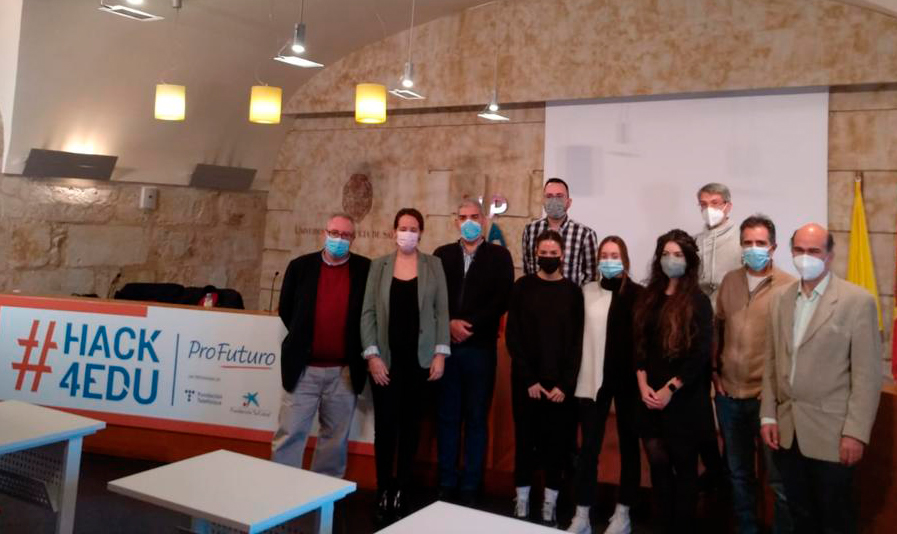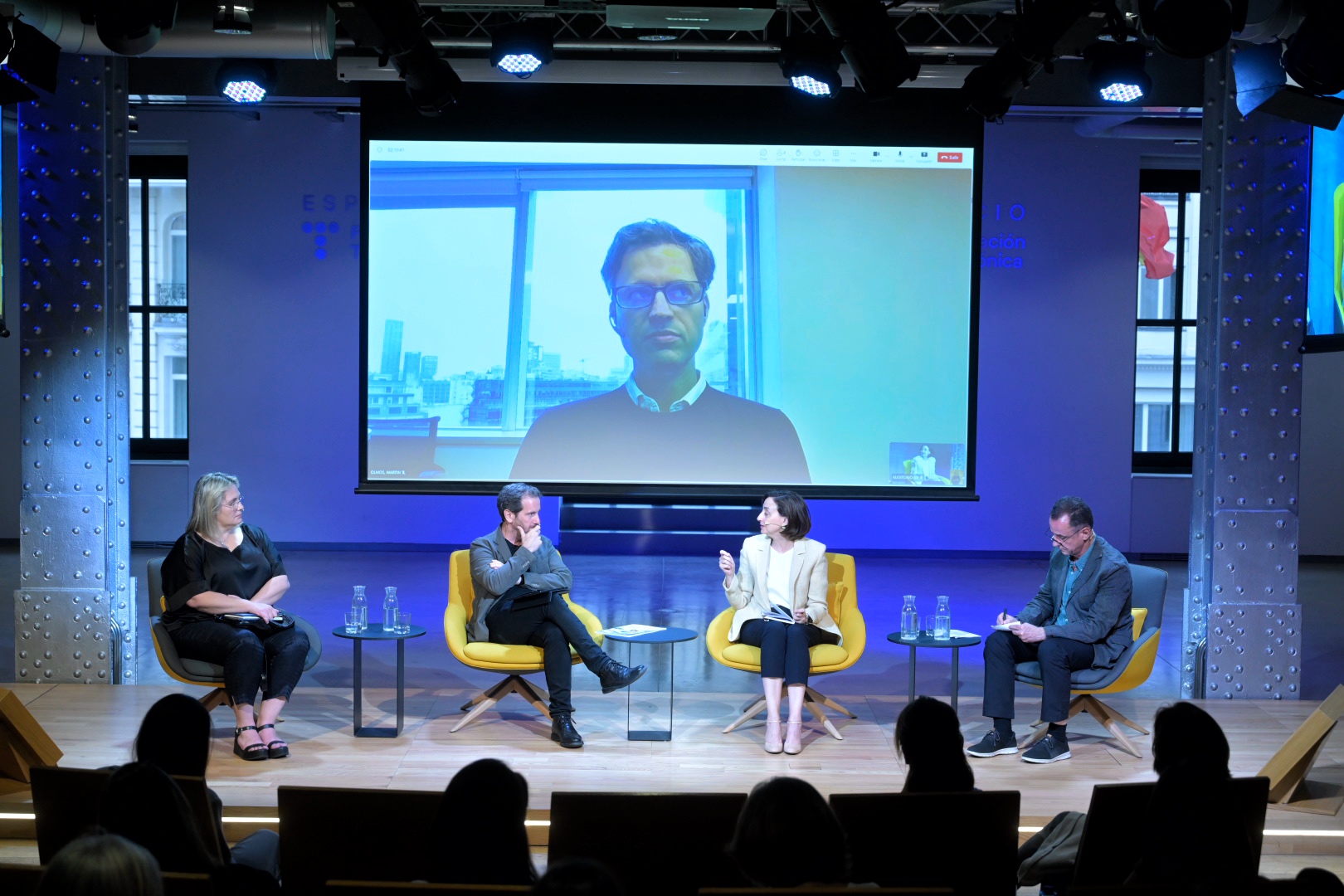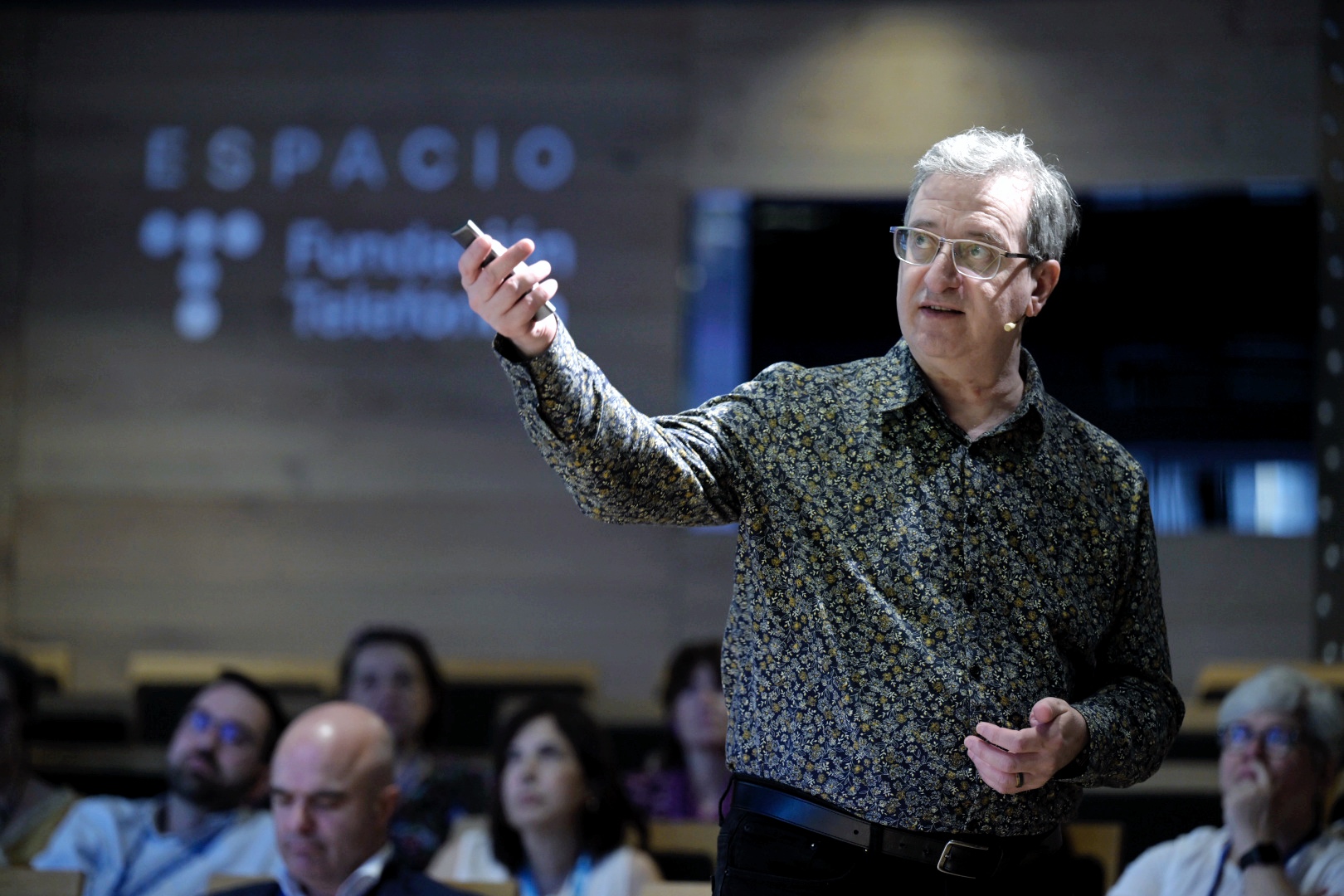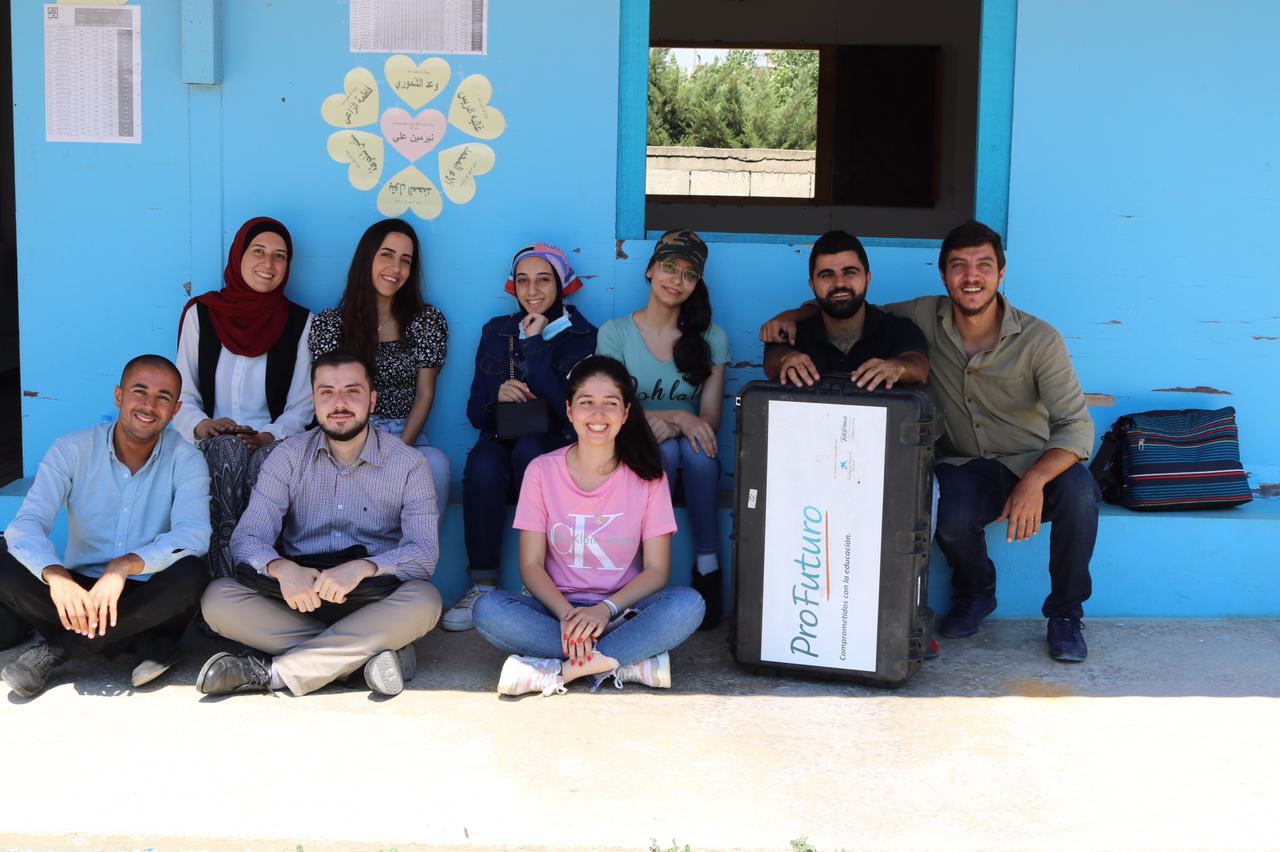The second edition of #hack4edu, held for the second year running and for the first time in a hybrid format, has given rise to various projects driven by university students who put digital innovation at the service of the collective good, especially focused on improving the quality of education and narrowing the education gap in the most vulnerable areas of the planet.
Over 3 days, 130 hackers from 6 countries and 12 Spanish and Latin American universities worked in multidisciplinary teams in a hybrid format to come up with solutions to the challenges of digital education.
In order to select the 7 winning projects, an international jury, composed of technology experts from the academic world and business, based their selection on evaluation criteria which took into account the creativity and innovation of the proposed solutions, the degree of completion and the final quality of the projects presented, as well as the transferability of the prototypes to the market and the orientation towards solving digital education problems in disadvantaged countries.
Winning Projects
In the Senior category, which awards two prizes of €1,000, one has been awarded ex aequo (with an amount of €500 awarded to each winner) to one team from the Pontifical University of Salamanca (UPSA in its Spanish initials) and another one from the Technological University of Panama. The first one presents a tool that detects the emotions of students through deep learning to improve the development of classes and make them more dynamic and attractive; and the second team proposes the construction of a website prototype capable of translating Panamanian sign language using artificial intelligence. The jury emphasised that the latter, called Signspa, can help people with hearing problems to enter the world of education.
Under the same category, the University of Salamanca’s (USAL) Words4All project, developed by a team made up of teachers and students from the fields of health, education and computer science, was also awarded €1,000. Their proposal consists of an app based on the world-famous TV quiz show, Pasapalabra which, using disruptive technologies such as voice recognition, works on illiteracy and promotes learning through gamification.
In the Innovative category, the first prize of €1,000 went to a team from the University of Salamanca (USAL) for the Hear4All project. This is an app that translates different languages and dialects into sign language in real time in order to improve the educational experience for deaf people. The jury highlighted its quality, its focus on a real issue and its potential for future development. In the same category, the second prize (€700) and third prize (€500) went to the E-Seña project, from the Instituto Federal de Catarinense in Brazil, and the Listudents project, from the Pontifical University of Salamanca (UPSA), respectively. The first proposes an intelligent virtual platform to help deaf students in their learning and the second provides a 180-degree turn on the traditional method of taking the register, with an app that allows them to do it automatically thanks to NFC (Near Field Communication) technology, thus saving time for both students and teachers.
Similarly, the promoters of “La decisión de la ayuda” (The decision to help) project, of the Pontifical University of Salamanca (UPSA), have received two free enrolments to do the university’s own Expert in Big Data degree. The aim of this award is to recognise work that has been developed with data and how it has succeeded in extracting value from the information. The proposal recognised in this case is a program based on the development of a scorecard that allows organisations and governments to establish criteria for targeting education aid more effectively.
A second edition with a higher level and in a hybrid format
The organisers of the hackathon, promoted by ProFuturo and the UPSA with the collaboration of the Telefónica Chairs Network, point out the qualitative leap in this second edition. “The level is increasingly professional. We are seeing projects and prototypes that really respond to a need. This year the participants have surpassed themselves and there has been great involvement on the part of students, professors, etc., who have formed a diversity of mixed teams, with different skills and nationalities, including collaboration between Latin American and Spanish sites, but also between Spanish ones”, says Manuel José Ruiz García, manager of data analytics at ProFuturo and coordinator of #hack4edu.






